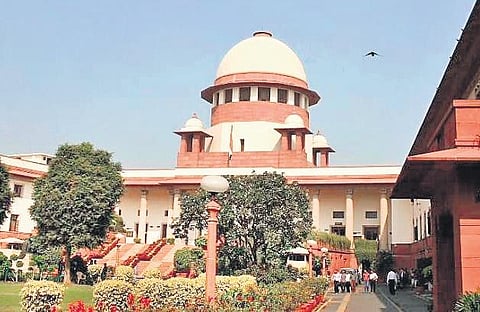

NEW DELHI: With less than a month until CJI UU Lalit’s retirement and two of the five-member Supreme Court Collegium opposing a proposal to recommend four new judges, including a Supreme Court lawyer, to the top court via written note rather than a formal meeting, Chief Justice of India U U Lalit is said to have written to them again, requesting reconsideration of their position.
The names recommended by Lalit to the four other members are three sitting HC chief justices (Punjab and Haryana High Court Chief Justice Ravi Shankar Jha, Patna High Court Chief Justice Sanjay Karol and Manipur High Court Chief Justice PV Sanjay Kumar) and Senior Advocate KV Viswanathan. Senior Advocate KV Vishwanathan would go on to become the CJI in August 2030 if his name is recommended by collegium and cleared by the government.
Last week, Lalit in an unprecedented move, had initiated the proposal for the appointment of SC judges by writing a letter to the fellow members in the Collegium, Justices DY Chandrachud, SK Kaul, S Abdul Nazeer and KM Joseph, requesting them to grant their consent to the names proposed by him.
The letter which was received by the judges on Saturday, according to people aware of the development, pointed out that the names that were being proposed were deliberated upon in previous Collegium meetings. The letter was written after the Collegium meeting which was scheduled for September 30 and could not take place due to unavailability of Justice Chandrachud who held the court till 9:10 PM.
The meeting which was scheduled for September 30th was supposedly Lalit’s last collegium meeting SC went into recess for Dussehra break and will reopen on October 10 and the one month mark would prevent Lalit is set to retire on November 8, 2022 from making recommendations for judicial appointments due to the appointment process for his successor being in gear.
On receipt of the letter, according to the sources the two collegium members, while strongly objecting to CJI’s move, had said that appointment to the high constitutional office and as judges of the highest court should never be done through circulation. According to reports, the two members objected only to the manner in which the recommendations were initiated, not to the merits of the individuals recommended. A fourth judge was said to be away and said that he would respond when he returned.
Further, according to sources familiar with the development, SC collegium headed by CJI UU Lalit in a first had decided to start evaluating judges based on their performance before recommending their elevation to the top court. On September 26, the Collegium recommended to the Centre elevation of Bombay HC’s Chief Justice Dipankar Datta as SC judge.
CJI Lalit, who is set to retire on November 8, has very little time on his hands. The government writes to the outgoing CJI about a month before his retirement, and the CJI, in turn, recommends the name of the most senior judge as the successor. When a new name is proposed, the incumbent CJI usually refrains from making decisions on judicial appointments and instead defers to the new CJI.